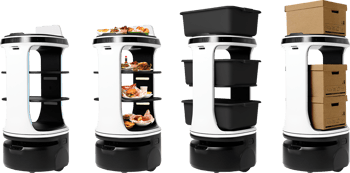Restaurants are known as high-stress, high-pressure environments. The hours can be long and the work strenuous. As a result, the industry has some of the highest rates of mental illness in any field. And while the pandemic has undeniably added to the challenge, this is far from a new problem the industry faces.
In 2017, Unilever Food Solutions released a report revealing that 63% of chefs feel depressed, 74% of chefs are sleep deprived to the point of exhaustion, and 53% report feeling pushed to the breaking point. A 2015 study by the Substance Abuse and Mental Health Service Administration ranks the restaurant industry highest among 19 industries for illicit drug use and third-highest for heavy alcohol consumption. And meanwhile, little more than a third of leisure and hospitality workers have healthcare coverage, according to the Bureau of Labor Statistics, making it difficult for restaurant workers to know where to turn when a crisis strikes or how to find affordable therapy.
In an industry where, first and foremost, workers are taught to look after everyone else, all of this makes it crucial for managers to prioritize conversations around mental health and hold regular check-ins with staff.
“Mental health is just like physical health, it’s just harder to see,” says Erin Boyle, former chef turned executive director of Culinary Hospitality Outreach and Wellness, better known as CHOW. “If I came in with a broken leg, my employer’s not going to expect me to do the exact same things that I was able to do before, and with an invisible disease, like depression or anxiety, you have to talk about it, or you’re just going to be wondering why this person isn't functioning like they used to.”
Based out of Denver, CHOW connects restaurant workers to mental health resources, including its own in-house programming, which includes mental health training, online guides, and weekly support groups. We teamed up with the organization to chat about some of the actionable items that owners, operators, and managers can implement for a healthier workplace, drawing from CHOW’s own Workplace Wellness Toolkit. While the ideas are meant to be simple, Boyle acknowledges that the actual execution isn’t typically easy. The goal, however, is to create lasting change that results in a more sustainable business for both owners and their staff.
“It’s incredibly hard to be a compassionate, empathetic employer and still run the organization – so just know that this will likely feel hard, but it’s going to increase employee retention, reduce turnover, and all the costs associated with that,” says Boyle. “It’s also going to decrease absenteeism and help foster creativity and innovation, and people will just be happier and healthier – and the people who come to dine at your restaurant feel that.”
1. "Temperature Take": Do a daily check-in with your team at pre-shift.
Making mental health conversations part of the regular work routine is an important step towards normalizing those conversations and reducing the stigma. “The more people talk about it, the more folks who will get treatment and build coping skills,” says Boyle.
However, we know the act of sharing feelings doesn’t always come easily, which is why CHOW developed its “temperature take” model, designed to make the process more inviting.
“We ask, ‘How are you feeling on a scale from rare to well-done?’ — ‘rare’ meaning juicy, full of life, and ‘well-done’ meaning joyless, flavorless,” says Boyle. “It gives a baseline for everyone to be heard and seen. Even if I can just say to the group, ‘I’m medium-well today’, without any other details, that indicates how I’m feeling, and people can give me a little more grace.”
type: embedded-entry-inline id: 4VAXPxZWom7ggPuYegUA90
Take five to ten minutes during pre-shift meetings to go around the room and check in. This gives staff the opportunity to express how they’re feeling, rather than bottling everything up, and communicate, or indicate, what they may need to excel in the shift ahead.
2. Lead by example, and demonstrate breaks are OK.
As a manager, you inherently become a leader that staff look to for guidance and direction. This makes it important to evaluate what you’re doing to support your own wellness. Leaders set the bar for what’s acceptable.
“If someone’s really wound up about something, encouraging them to take a break is great, but if they’ve never seen you take a break, they’re going to think, ‘Well, if they don’t need breaks, I don’t need breaks, because I want to be them someday.’,” says Boyle.
You might think, “Who has time for a break?”. But even small acts, like sitting down when you take lunch or going for a quick walk around the block in moments of frustration, can set a huge example.
“We’re not perfect, and we’re working in high-stress situations – being able to show people that it’s OK to be human and take some time is important,” says Boyle.
The same rule applies to vacation time. Time off is integral to well-being, sustained productivity, and performance. When you take a day off, you confirm that it’s OK to step away from work, while also demonstrating trust in your team to step up and lead.
3. Highlight staff successes, inside and outside of the workplace.
If you’re not already highlighting employee achievements, now’s a good time to start. Studies show people who feel valued at work are often happier and more productive. On the flip side, as many as 79% of employees who quit their jobs cite a lack of appreciation as a key reason for leaving.
Consider building a routine to identify and share successes. There are many ways you can communicate these, whether through a monthly staff email or at the end of a staff meeting. Keep in mind, you don’t need to break record sales to make an announcement. Even small wins are worth praising. Did someone stay late on a busy night to help close? Did Jane do Mike’s silverware rolls on a day where he had to leave early? Did your bartender craft a new special that was a real hit?
“It fosters the idea of psychological safety – I’m safe in this place, and they’re noticing that I’m here to help,” says Boyle.
It’s also good practice to highlight achievements that happen outside of the workplace. This builds morale, helps your team get to know each other and strengthen connections, and demonstrates that you care about your employees as human beings.
“Maybe it’s an artist who just got a new gig, or someone who’s made it public that they’re trying to quit smoking, and they shared their reduction to one pack for the week – celebrate those successes,” says Boyle. “It’s about acknowledging and applauding people for being a whole person and celebrating what fulfills them.”
4. Allow staff to nominate each other for outstanding behavior.
Want to boost your appreciation efforts? Invite staff to get involved by allowing employees to nominate their peers for outstanding behavior. This may not only further boost morale, but also help tip you off about who’s putting in extra work or who might be a good candidate for new or higher positions.
Rewards are also a nice way to increase the impact of appreciation shout-outs. CHOW recommends offering nominees gift cards to your own restaurant or partnering with local businesses to share gift cards for staff.
5. Establish a resource guide, and talk about it often.
The average restaurant doesn’t have an Employee Assistance Program (EAP). But there are numerous national resources, from the Crisis Text Line to the National Suicide Prevention Lifeline to Alcoholics Anonymous and beyond, where you can refer staff. (View CHOW’s curated list, here.)
There are plenty of organizations that cater specifically to the restaurant industry, too, offering industry workers everything from financial assistance in times of crisis to free tele-therapy. (We’ve rounded up a few of those, here.)
It’s important to create a guide that lets your staff know where they can access resources for things like human services, emergency shelter, food, clothing, financial help, legal assistance, mental health, and recovery support groups. Ideally, you’ll have a printed version that’s visible and accessible to employees, i.e., posted in the back of house, along with a link to a more comprehensive list online. This doesn’t require spending time creating your own – there are countless resource guides that already exist.
You do, however, need to spend time talking about this list with your restaurant team on a regular basis. Even for companies that have an EAP, studies show less than 10% of employees use it. And that’s often attributed to the fact that employees don’t know about it or how to access it.
“If you’ve got a poster on the wall and you mention it once a year, people are going to forget about it,” says Boyle. “You need to be talking about it at least once a week or maybe even everyday at pre-shift, just reminding them that the resource exists.”
6. Identify the boundaries between boss and therapist.
It doesn’t matter if you’ve got decades of experience – a manager role doesn’t match that of a trained therapist. While it’s important to encourage staff to talk about their struggles, it’s also important to set boundaries.
“CHOW likes to encourage people to say, ‘I care. I’m concerned. I’m not qualified.’,” says Boyle.
You can let staff know that they’re heard, and then offer to help find resources where they can take the conversation further.
“You might say, ‘It sounds like you're telling me that you're depressed and need some help. I can help you make calls. I can give you a day off to have the meeting with a new therapist. But I'm not qualified to help you [as the therapist].’,” says Boyle
7. Invite a guest speaker or host mini education sessions during family meal.
It’s not always easy to start conversations about wellness and recovery. But you don’t have to do it alone. Take a look at the wellness organizations in your own community, and reach out to see if they have any speakers willing to host a mini education session. You can bring them in during family meal or perhaps a paid hour during closing hours.
If you’re not sure where to start, CHOW invites you to reach out. “We can be a resource to help connect you,” says Boyle. (Contact Boyle directly at erin@chowco.org.)
8. Evaluate your menu and operating hours.
As the saying goes, sometimes less is more.
Last year, 60% of restaurants slimmed down their menu, and as of October of 2022, restaurants trimmed their weekly operating hours by 7.5% compared to 2019, according to reports from market-research firm Datassential. These are continuing trends that are largely a result of higher food costs and labor challenges, but in turn, they’re helping operators fight burnout.
“If you’re pushing your staff to work six or seven days a week so that you can keep your entire dining room or kitchen open, that’s just not sustainable, especially in a labor force where it’s hard to get new people in,” says Boyle. “A small loss daily is better than losing valuable team members or affecting the experience of the guest because everyone’s working doubles.”
Evaluate your menu, compare your sales to food costs, and identify which items might make sense to cut. A smaller menu is inherently easier for staff to learn and execute, and when customers have less choices, it can also lead to quicker table turns.
Then, take a look at your operating hours to ensure you’re operating in a way that maximizes staff energy levels and your bottom line. If only one or two stragglers are coming in every night during your final opening hour, closing earlier is likely to benefit your overall business.
Grace Dickinson is a reporter at Back of House. Send tips or inquiries to grace@backofhouse.io.
[Photo courtesy Nappy via Pexels]





